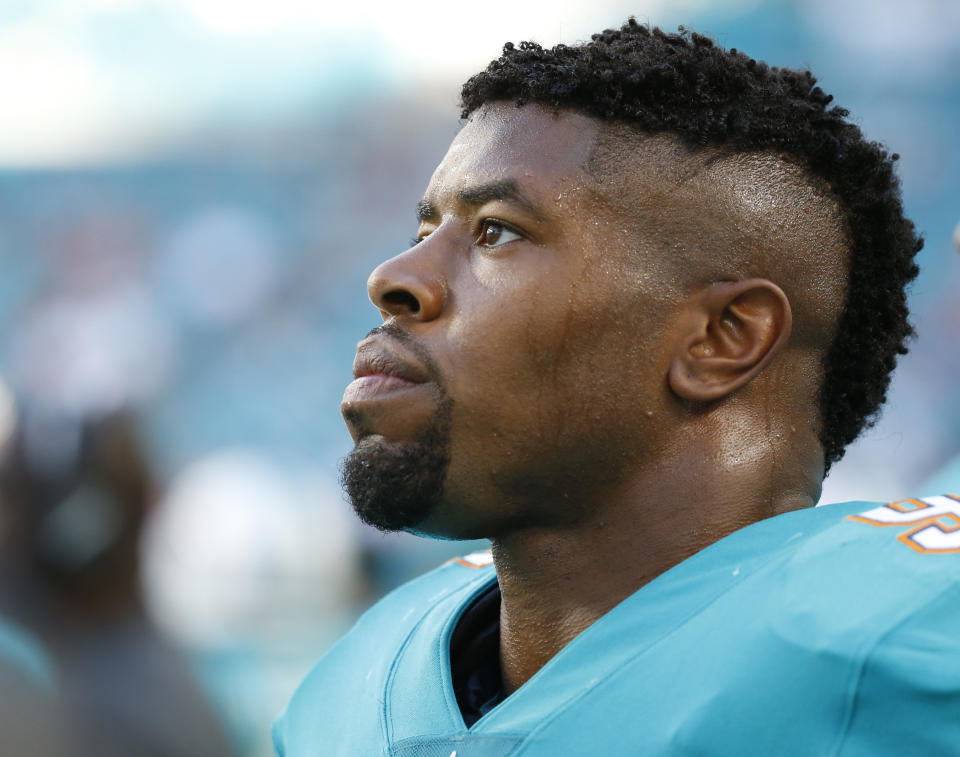Dolphins' Cameron Wake blasts safety rules that favor offense: 'My knees aren’t valuable to the NFL?'

Miami Dolphins defensive end Cameron Wake is the latest to speak up on NFL safety rules in the aftermath of Monday’s injury-riddled Bengals-Steelers game that left Steelers LB Ryan Shazier in the hospital.
And he is not pleased.
The five-time Pro Bowler took the NFL to task in an interview with the Florida Sun-Sentinel for rules that end up with flags and fines for defensive players when offensive players don’t face the same scrutiny and are sometimes responsible for the outcome of the hits in question.
“Where’s the line?” Wake asked. “Are you going to tell all the running backs, listen you’ve all got to slow down a little bit? Receivers?
“We’re rarely defenseless as a defender. I mean my knees aren’t valuable to the NFL? They can cut me, they can do everything; but if I brush a quarterback, I get fined.”
He’s got a point. Glancing blows to quarterbacks get flagged while health and career-threatening low blows and headshots to defensive players are rarely called.
Running backs run helmet first with little consequence, while safeties get fined when receivers dive for a ball at the last second. Just ask Steelers safety Mike Mitchell his thoughts.
Wake also addressed how the very nature of the game is under fire.
“I want to hurt everybody I play,” Wake said. “I don’t want to injure anybody. I want you to be able to get up and go to the next play. I want you to feed your family and play next week, but I want you to say ‘Man, Cameron Wake.”
It’s another good point. What he’s describing is the core of tackle football. Instilling fear is part of the game, and expecting defenders to slow down opens up the injury risk to themselves.
As a nine-year veteran with multiple honors, Wake’s words matter.
And his words strike at the crisis facing football. All of Wake’s arguments are rational, but the football discussion pales in comparison to knowledge we have now of the effects of brain trauma and CTE on the well-being of football players at every level.
Arguments about fault and fines pale when considering that Junior Seau shot himself in the chest to preserve his brain for scientific study after his death.
It’s a debate that will continue to rage on. And there is no easy answer.


